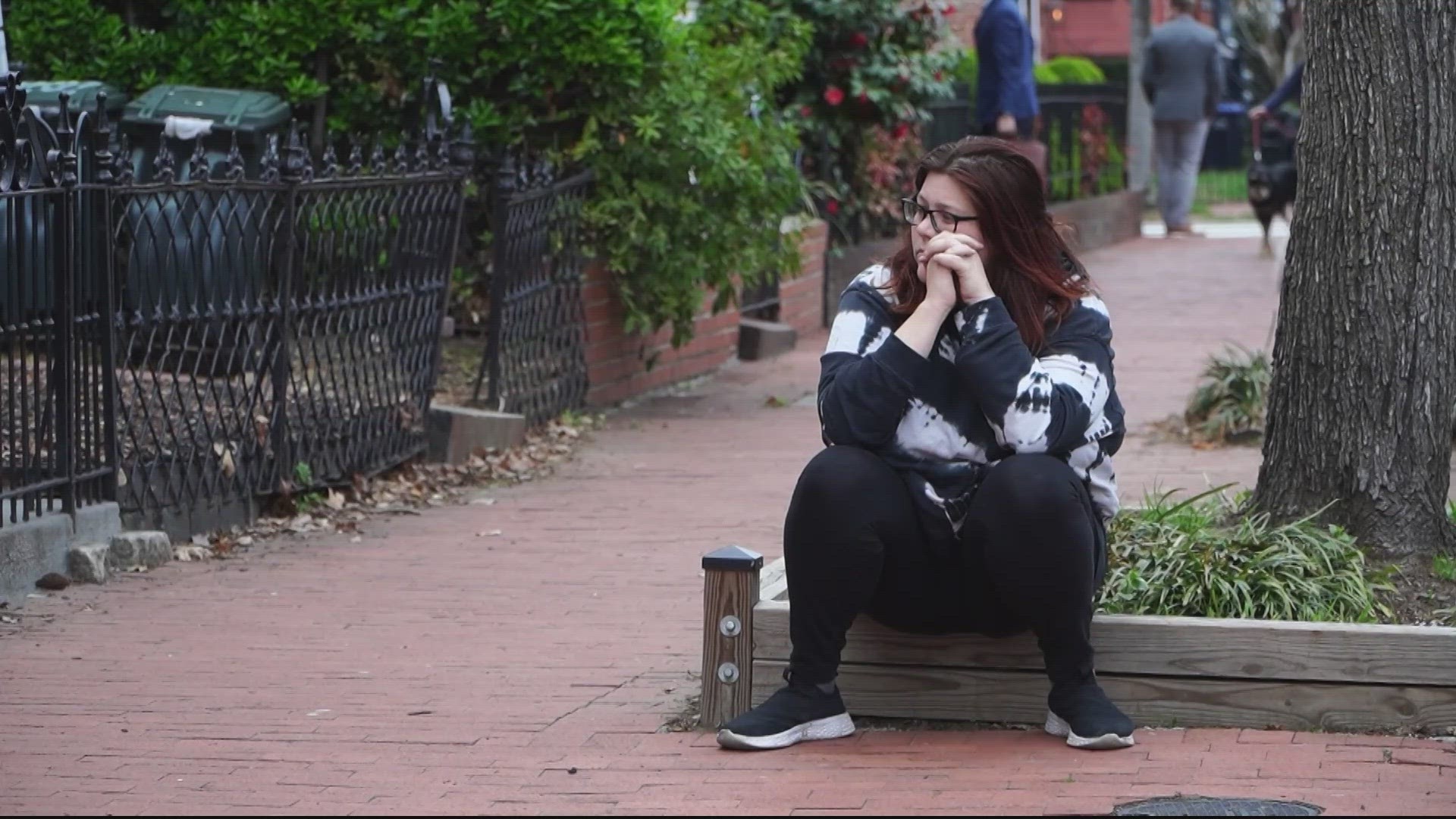WASHINGTON — An Ohio woman who traveled to a D.C. clinic to receive an abortion after learning her fetus had an abnormality likely incompatible with life testified Thursday about collapsing in pain after a group of anti-abortion activists refused to let her enter the facility.
Prosecutors called the woman as a witness Thursday morning in the trial of Lauren Handy and four other anti-abortion activists accused of blockading the Washington Surgi-Clinic in October 2020. The woman was allowed to testify under the pseudonym “Shampy Holler” to protect her privacy.
Holler, who immigrated to the U.S. from India in 2017, said she and her husband made the difficult decision to travel to D.C. to terminate her pregnancy after a doctor told them her fetus had a developmental condition that would likely mean it would not survive after birth. Holler said they believed the laws in place in Ohio at the time would have prevented them from terminating the pregnancy in the state.
“I wanted the child, but there was some physical issue with that child,” Holler said.
ALSO READ
Much like another witness who testified a day earlier that she had to climb through a window to evade the anti-abortion blockade, Holler said she had gone to the clinic on two previous days without issue. When she arrived for the third and final day on Oct. 22, 2020, she said she was in extreme pain because she had taken a drug used to induce labor as part of the procedure and could barely stand.
Surveillance video entered as evidence in the case shows Haller and her husband, who do not speak English as their first language, trying repeatedly and unsuccessfully to enter the clinic while activists block doorways. Holler eventually collapsed on the floor in pain.
“We were not able to understand what was happening,” she said. “He was just telling them, ‘Please let her go. Please let her go.’”
Holler said a nurse was eventually able to take her by the hand and get her inside the clinic. Attorneys for all five defendants passed on the opportunity to cross-examine Holler.
Prosecutors called Haller as a witness on the second day of testimony in the trial of five anti-abortion activists — Handy, Heather Idoni, Herb Geraghty, William Goodman and John Hinshaw — who face felony charges of conspiracy and violating the Freedom of Access to Clinic Entrances (FACE) Act. She followed testimony from a former member of the anti-abortion rescue movement, Caroline Davis, who agreed to cooperate with the government as part of a plea deal for a similar but unrelated abortion blockade case in Michigan. Davis, who traveled to D.C. with Idoni, went to the clinic on Oct. 22, 2020, to try to dissuade women from getting abortions but did not participate in blockading any doors. She testified that although she still believes abortion should be illegal, she no longer agreed with tactics like using ropes and chains to blockade facilities like the defendants in the case are alleged to have employed.
“The people who do these blockades feel their religious beliefs and personal beliefs supersede the law,” Davis said.
Davis also testified that Handy, the lead defendant in the case, had led a group of anti-abortion activists through the plan to blockade the clinic the night before and had explained the risk that they might be arrested on criminal charges – including violating the FACE Act. On cross-examination from Handy’s attorney Martin Cannon, Davis said Handy had encouraged all the participants to remain peaceful and not engage in violence. None of the defendants are charged with committing violence during the blockade.
The trial was expected to continue Thursday with testimony about incidents at other clinics involving one or more of the defendants, including a 2021 incident at an Alexandria women’s clinic for which Handy was convicted and sentenced to 30 days in jail.

